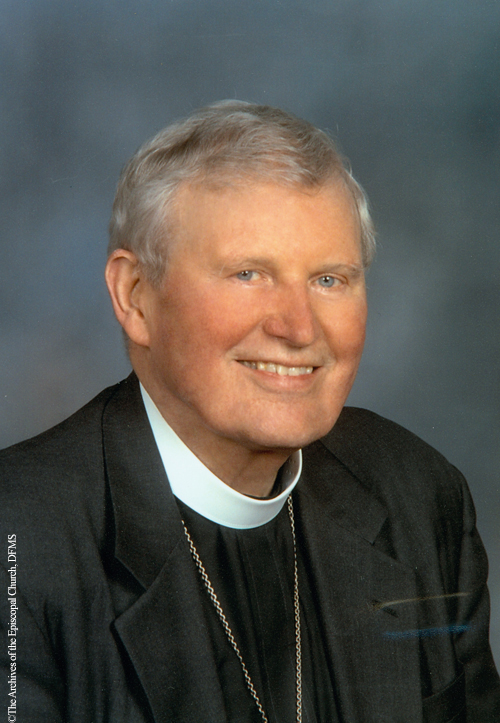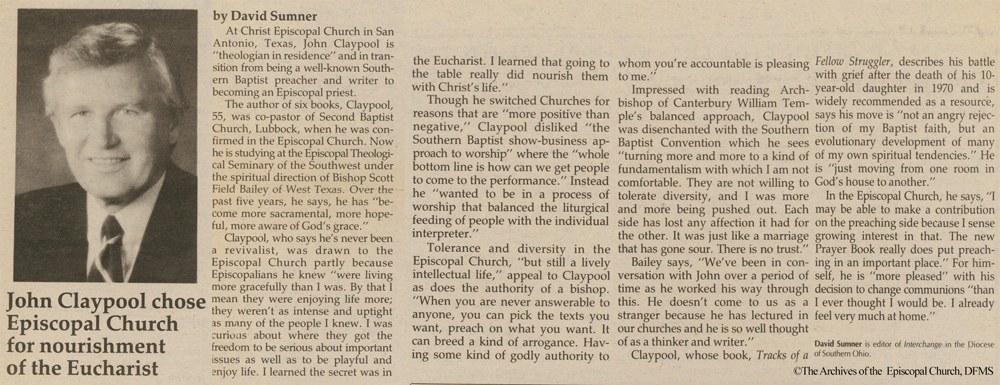Episcopal Preacher
Increasingly disenchanted by the Baptist Convention’s fundamentalism and intolerance of diversity, Claypool found himself being “pushed out.” He describes being drawn to “light and warmth” through the sacraments, which exceeded his resources as a Baptist minister. Practicing as a Baptist minister, Claypool read the works of Anglican theologians such as William Temple and C. S. Lewis, who were influential in his faith formation. Over the years, exposure to Anglicanism through teaching, continuing education, and encounters with Episcopal clergy and laity who deeply impressed him paved the way for Claypool’s realization that becoming an Episcopal priest would provide a sense of “personal coherence and exciting growth” both personally and professionally.
Claypool resolved in 1985 to seek admission to the Seminary of the Southwest in Austin, Texas, where he completed theological studies in 1986. He was ordained deacon and priest in 1986 in the Diocese of West Texas and began his first job as an Episcopal priest as Associate Rector of Christ Episcopal Church in San Antonio, where he had served as Theologian-in-Residence while in seminary. Claypool’s next assignment took him to Birmingham where he was rector of St. Luke’s Episcopal Church from 1987 until his retirement in 2000. While at St. Luke’s, Claypool made what was then a risky decision to hire the first two female priests in Birmingham.
READ
The Alchemy of Grace, 1992, St. Luke’s Episcopal Church, Birmingham, AL. Claypool invokes the Samaritan’s act of love in helping others to demonstrate the power of grace: “deliberate intention to take our wounds and allow them to make us more compassionate and more aware, rather than more despairing and more bitter.”
LISTEN
Being Who We Are, 1989, St. Luke’s Episcopal Church, Birmingham, AL. Every individual has a unique plan intended by God. Claypool urges his listeners to follow that light rather than the designs of others.



